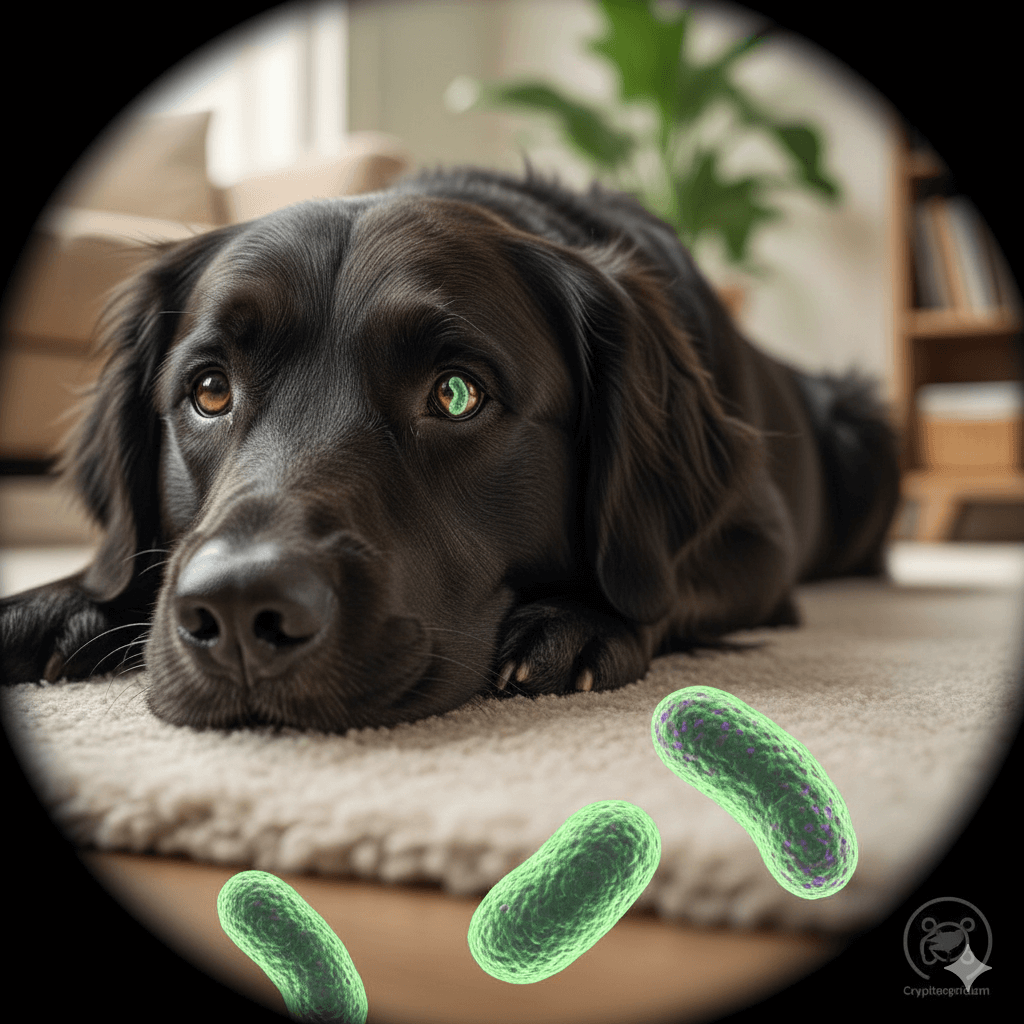Irritable Bowel Syndrome Symptoms in Dogs
Just like humans, dogs can experience digestive issues that disrupt their daily lives. One such condition is irritable bowel syndrome (IBS), a chronic disorder that affects the gastrointestinal tract and causes discomfort for our furry friends. While IBS in dogs isn’t life-threatening, it can significantly impact their quality of life if left unmanaged. Recognizing the symptoms early and understanding how to address them is key to ensuring your dog stays happy and healthy. In this blog post, we’ll explore the signs of irritable bowel syndrome in dogs, its potential causes, and practical tips for managing this condition effectively.
Expert Opinion on Irritable Bowel Syndrome (IBS) in Dogs
“Irritable bowel syndrome (IBS) in dogs is a condition where the intestinal muscles don’t function normally, and it causes diarrhea and constipation. True IBS is not common in dogs. Irritable bowel syndrome is a diagnosis of exclusion, which means that there is no cause that can be found for a dog’s diarrhea through testing.”
Common Symptoms of Irritable Bowel Syndrome in Dogs
Identifying the symptoms of irritable bowel syndrome in dogs is the first step toward helping your pet feel better. These signs can vary in severity but often include changes in digestion and behavior.
Chronic Diarrhea:
Frequent loose stools are one of the most common indicators of IBS in dogs. This symptom may persist for weeks or occur intermittently.Constipation:
Some dogs with IBS experience difficulty passing stool, leading to straining and discomfort during bathroom trips.Vomiting:
Occasional vomiting or regurgitation can accompany IBS, especially after eating certain foods.Abdominal Pain:
Dogs with IBS may exhibit signs of abdominal discomfort, such as whining, restlessness, or reluctance to be touched around the belly area.Changes in Appetite:
A sudden decrease or increase in appetite can signal digestive distress caused by IBS.
If you notice any combination of these symptoms, it’s important to consult your veterinarian to rule out other conditions and develop a treatment plan tailored to your dog’s needs.

Potential Triggers for Irritable Bowel Syndrome in Dogs
Understanding what triggers IBS in dogs can help you manage the condition more effectively. Several factors can contribute to flare-ups, including diet, stress, and environmental changes.
Food Intolerances:
Certain ingredients, such as dairy, gluten, or artificial additives, can irritate a dog’s digestive system and worsen IBS symptoms.Stress and Anxiety:
Changes in routine, loud noises, or separation anxiety can exacerbate IBS by disrupting gut health.Infections or Parasites:
Bacterial infections or intestinal parasites may trigger inflammation in the digestive tract, mimicking IBS symptoms.Allergies:
Environmental allergens like pollen or dust mites can indirectly affect gut health and contribute to IBS flare-ups.Lack of Exercise:
Insufficient physical activity can slow down digestion, worsening constipation or bloating associated with IBS.
By identifying and minimizing these triggers, you can reduce the frequency and intensity of your dog’s IBS episodes.
Check this guide 👉Do Raised Dog Bowls Prevent Bloat? Best 7 Tips!
Check this guide 👉Will a Dog with Bloat Drink Water? Best 7 Health Tips!
Check this guide 👉Recognizing the Signs of Bloat in Dogs: Best 7 Expert Tips!
Symptoms of IBS in Dogs | Management Tips for IBS |
|---|---|
Chronic diarrhea | Feed a bland, hypoallergenic diet |
Constipation | Increase fiber intake gradually |
Vomiting | Avoid fatty or spicy human foods |
Abdominal pain | Provide a calm, stress-free environment |
Changes in appetite | Ensure regular exercise and hydration |
How to Support Your Dog’s Digestive Health
Managing irritable bowel syndrome in dogs requires a holistic approach that addresses both their physical and emotional well-being. Here are some actionable steps to support your dog’s digestive health.
Switch to a Hypoallergenic Diet:
Opt for high-quality dog food free from common allergens like grains, soy, or artificial preservatives.Introduce Probiotics:
Probiotic supplements can restore beneficial gut bacteria, improving digestion and reducing symptoms of IBS.Monitor Portion Sizes:
Overfeeding can overwhelm your dog’s digestive system. Stick to recommended portion sizes based on their size and activity level.Provide Fresh Water:
Dehydration can worsen digestive issues. Ensure your dog has constant access to clean, fresh water.Create a Stress-Free Environment:
Minimize exposure to stressful situations, such as loud noises or unfamiliar guests, to prevent IBS flare-ups.
Implementing these practices can make a significant difference in your dog’s comfort and overall health.
When to Seek Veterinary Care for IBS in Dogs
While mild cases of IBS can often be managed at home, there are times when professional veterinary care is necessary. Knowing when to seek help ensures your dog receives timely treatment.
Persistent Symptoms:
If diarrhea, vomiting, or constipation lasts more than a few days despite dietary adjustments, contact your vet immediately.Blood in Stool or Vomit:
The presence of blood indicates a more serious underlying issue that requires medical attention.Weight Loss:
Unexplained weight loss can signal malnutrition or another condition beyond IBS.Lethargy or Weakness:
Extreme fatigue or inability to engage in normal activities may point to dehydration or nutrient deficiencies.Behavioral Changes:
Sudden aggression, withdrawal, or unusual clinginess can indicate severe discomfort or pain.
Prompt veterinary intervention can prevent complications and ensure your dog receives the care they need.
Tips for Transitioning Your Dog’s Diet Safely
Changing your dog’s diet too quickly can worsen IBS symptoms. Follow these tips to transition their food safely and minimize digestive upset.
Gradual Mixing:
Start by mixing small amounts of the new food with the old, gradually increasing the proportion over 7–10 days.Observe Reactions:
Monitor your dog’s stool consistency and energy levels to identify any adverse reactions to the new diet.Avoid Sudden Switches:
Abrupt dietary changes can shock the digestive system, leading to diarrhea or vomiting.Choose Simple Ingredients:
Look for foods with limited, easily digestible ingredients to reduce the risk of triggering IBS.Consult Your Vet:
Always discuss dietary changes with your veterinarian to ensure they align with your dog’s specific needs.
A careful approach to diet transitions can ease your dog’s digestive burden and improve their overall well-being.
Natural Remedies to Soothe IBS Symptoms in Dogs
In addition to veterinary treatments, natural remedies can complement your efforts to manage IBS in dogs. These options are gentle yet effective in promoting gut health.
Pumpkin Puree:
Plain pumpkin puree is rich in fiber and can help regulate bowel movements in dogs with IBS.Slippery Elm Bark:
This herbal supplement coats the digestive tract, soothing irritation and reducing inflammation.Ginger:
Ginger has anti-inflammatory properties that can alleviate nausea and improve digestion.Bone Broth:
Low-sodium bone broth provides hydration and nutrients while being easy on the stomach.Chamomile Tea:
Chamomile has calming effects that can reduce stress-related IBS flare-ups when given in moderation.
Incorporating these remedies under veterinary guidance can enhance your dog’s recovery journey.
The Role of Exercise in Managing IBS in Dogs
Regular physical activity plays a vital role in maintaining your dog’s digestive health and managing IBS symptoms. Here’s how exercise benefits dogs with IBS.
Improves Digestion:
Movement stimulates the digestive tract, preventing constipation and bloating.Reduces Stress Levels:
Exercise releases endorphins, which can lower anxiety and minimize stress-induced flare-ups.Encourages Healthy Weight Maintenance:
Maintaining an ideal weight reduces strain on the digestive system and prevents obesity-related complications.Strengthens Immune Function:
Physical activity boosts immunity, helping your dog fight off infections that could worsen IBS.Promotes Routine and Structure:
A consistent exercise schedule creates stability, which can ease the unpredictability of IBS symptoms.
By incorporating daily walks or play sessions, you can support your dog’s physical and mental health simultaneously.
Frequently Asked Questions About Irritable Bowel Syndrome in Dogs
What is the difference between IBS and IBD in dogs?
IBS refers to functional digestive issues without structural damage, while inflammatory bowel disease (IBD) involves chronic inflammation of the intestines.
Can IBS in dogs be cured?
While there’s no permanent cure, IBS can be managed through dietary changes, stress reduction, and medication if needed.
Are certain breeds more prone to IBS?
Yes, some breeds, such as Boxers, German Shepherds, and Yorkshire Terriers, may have a higher risk due to genetic predispositions.
How long does it take to see improvement?
With proper management, many dogs show improvement within a few weeks, though ongoing monitoring is essential.
Can stress alone cause IBS in dogs?
Yes, prolonged stress can disrupt gut function and trigger IBS symptoms, making stress management crucial.
Empowering Your Dog to Thrive Despite IBS
Living with a dog diagnosed with irritable bowel syndrome can feel challenging, but with patience and proactive care, you can help them lead a comfortable and fulfilling life. By recognizing the symptoms, addressing potential triggers, and working closely with your veterinarian, you can create a supportive environment that minimizes flare-ups and maximizes joy. Remember, every dog is unique, so finding the right balance may take time—but your efforts will undoubtedly pay off in the form of a happier, healthier companion.
Understanding Cryptosporidium in Cats: Best 7 Expert Tips! – Spot symptoms, treat safely, and stop parasite spread in your home.
Understanding Cryptosporidium in Dogs: Best 7 Expert Tips! – Learn symptoms, treatment & prevention for this stubborn gut parasite.
Understanding Syringomyelia in Cats: Best 7 Expert Tips! – Recognize signs, manage pain, and support your cat’s neurological health with vet-backed guidance.
Understanding Syringomyelia in Dogs: Best 7 Expert Tips! – Expert insights on symptoms, MRI diagnosis, pain management & quality of life.




